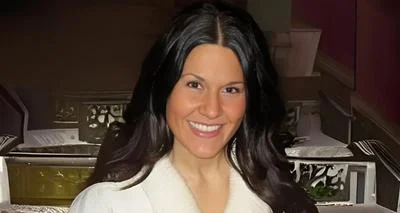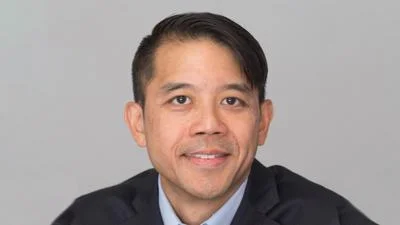Greg Johnson, Superintendent, OPRF District 200 | oprfhs.org
Greg Johnson, Superintendent, OPRF District 200 | oprfhs.org
Oak Park and River Forest High School District 200 superintendent Gregory Johnson wants higher homeowner property tax bills to cover the extra $90.5 million he needs to finish a school renovation project, now over budget by some 40 percent.
But he doesn’t plan on asking for their permission.
“Why would you go to voters if you don’t have to and you can accomplish some of these things (by borrowing)?," said Johnson's investment banker Elizabeth Hennessy of Raymond James.
On Aug. 16, Hennessy told members of the OPRF District 200 Community Finance Committee about Johnson's "end around" plan to secure cash without a community referendum vote, legally required for major capital projects. She said the the district could instead use "debt certificates," the equivalent of a school district high-interest credit card, to pay for the work, which includes "gender neutral bathrooms" and a new swimming pool.
In 2016, Oak Park and River Forest taxpayers voted down the swimming pool plan. Ever since, district administrators have been scheming to force them to pay for it, anyway.
“Debt certificates and non-referendum bonds are ways for (OPRF) to take taxpayers’ money without their permission,” said taxpayer Monica Sheehan of Oak Park, calling Johnson’s plan “undemocratic,” allowing “OPRF to circumvent voters on funding and make the taxing body unaccountable on spending."
In a letter to the Wednesday Journal, Sheehan said the plan would cost taxpayers $36.5 million in interest, or investment return for customers of Raymond James on their loan to OPRF.
"Debt certificates are not best practice. Funding for major capital projects goes to a bond referendum for taxpayer approval and to spread out the borrowing over the life of the asset. If approved, current and future taxpayers of the district pay for the project and enjoy its benefits," Sheehan said.
Sheehan compared the plan to what D200 did in 2013, when it raised property taxes without voter permission and put $130 million in the bank— or approximately $5,050 per district household.
"(Johnson's plans) are similar...to the tax loophole D200 manipulated two decades ago to unethically siphon off taxpayers’ dollars without their permission for nearly a decade," Sheehan said. "(This plan) would repeat a grave fiscal and moral mistake of the past."
In response, 77 percent of Oak Park voted in favor of a Nov. 2020 advisory referendum demanding administrators like Johnson ask them before spending on capital projects.
“Shall any capital expenditure of $5 million or more by any local taxing body within Oak Park be subject to a binding referendum for approval or rejection by voters?" read the ballot question, supported by 21,384 voters.
In 2021, the median effective property tax rate in Oak Park was 2.9 percent, or $10,916 on a home valued at $390,000, according to Blockshopper.com.
In River Forest, it was 2.7 percent, or $13,951 on a home valued at $512,750.
On a similar value home, property tax bills in Oak Park and River Forest are approximately five times what they are in Colorado, four times what they are in Tennessee and Arizona, three times the bills of Indiana, Florida and North Carolina and twice those of Massachusetts and Minnesota, according to Rocket Mortgage.
"Priority 1: Racial Equity"
Superintendent Johnson argues his school facilities renovation projects are required to achieve OPRF's primary goal, equalizing the median test scores of its white and black students.
The district's "strategic plan" deems equalization of test scores by race as both its top priority and its only one, declaring that even decisions on renovations should favor those that benefit black students more than white ones.
Johnson produced an analysis of renovation plans that examined every potential capital project for its black versus white student benefit.
Adding doors that open automatically was "pro-racial equity," because, per Johnson, black students have more trouble opening non-automated doors than white ones do.
"Automated doors will allow diverse learners to have easier access to various areas of the building," the analysis said. "It allows all of our students to more fully participate in the OPRFHS learning environment."
A renovation of tennis courts drew criticism because, per Johnson, not enough black students play the sport.
"Tennis is a sport that has historically had higher levels of envolvment (sic) from White students. Prioratizing (sic) the upgrade of the poor conditions of the courts in necesssary.(sic)," Johnson's analysis said. "However, setting the tennis courts as priority would mean that we are prioratizing (sic) spaces that advantage White students over spaces that students of color occupy."
The tennis court renovation was approved with the caveat that OPRF coaches make a concerted effort to recruit fewer white players, developing "a strategy to on how to increase student of color participation in the tennis program."
In 2018, then-schools superintendent Joylynn Pruitt-Adams outlined initial goals for the renovation plan in a memo to the board, announcing the “process” for what to renovate at OPRF should be focused on “equity, along several dimensions.”
The Oak Park & River Forest D200 Community Finance Committee (CFC) includes banker Melissa Cleveland, River Forest District 90 School Board Member and IT project manager Cal Davis, finance executive Petra Guerrero, lobbyist Greg Kolar, Schaumburg School District 54 business manager Steve Miller, OPRF CFO Cyndi Sidor, OPRF operations director Ron Anderson, OPRF finance director Alyssa Alfano, OPRF student services director Faith Cole, and two D200 board members, cat litter executive Tom Cofsky and telecommunications executive Kebreb Henry.






 Alerts Sign-up
Alerts Sign-up